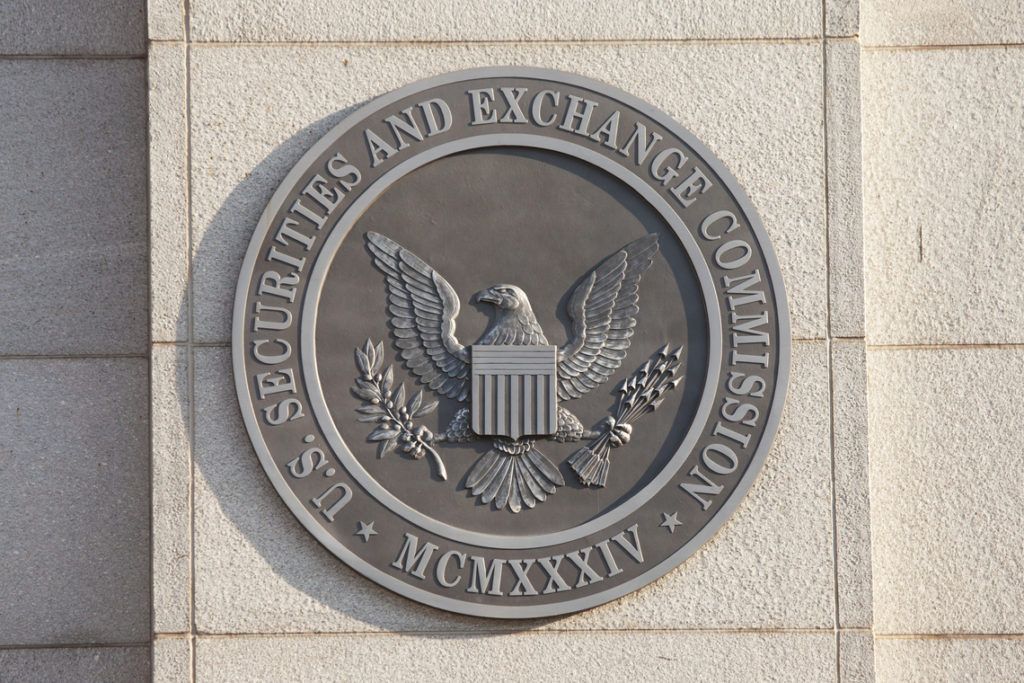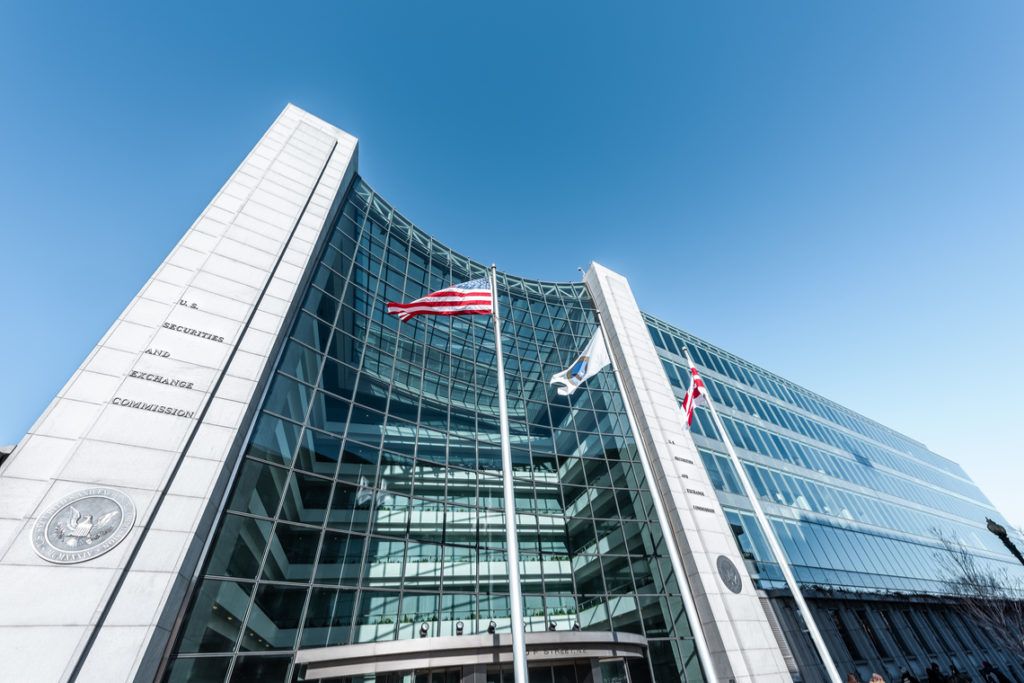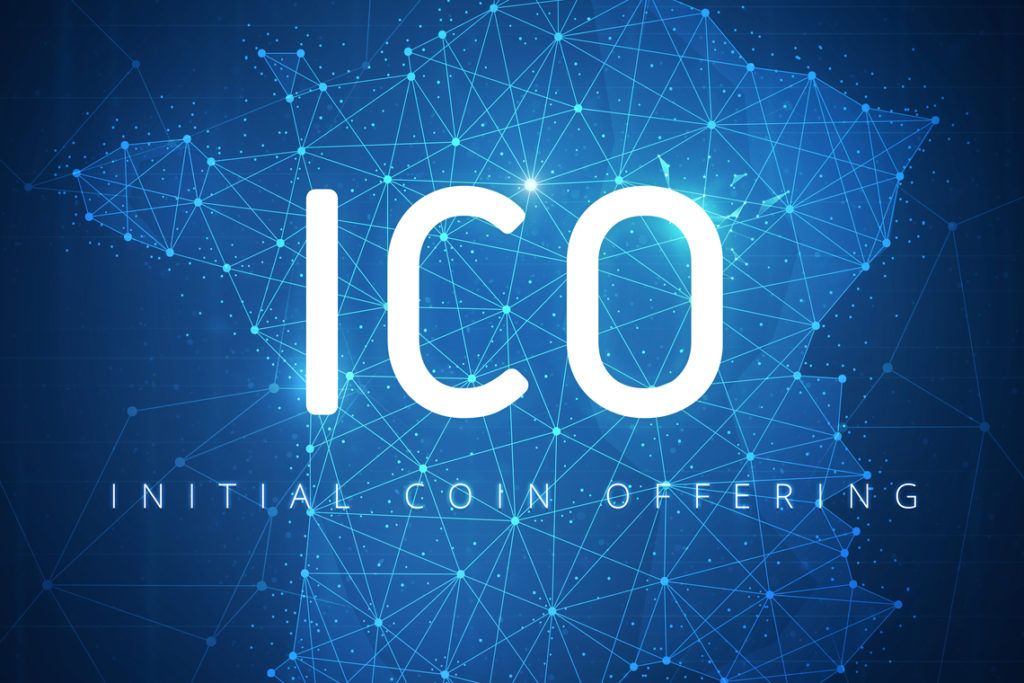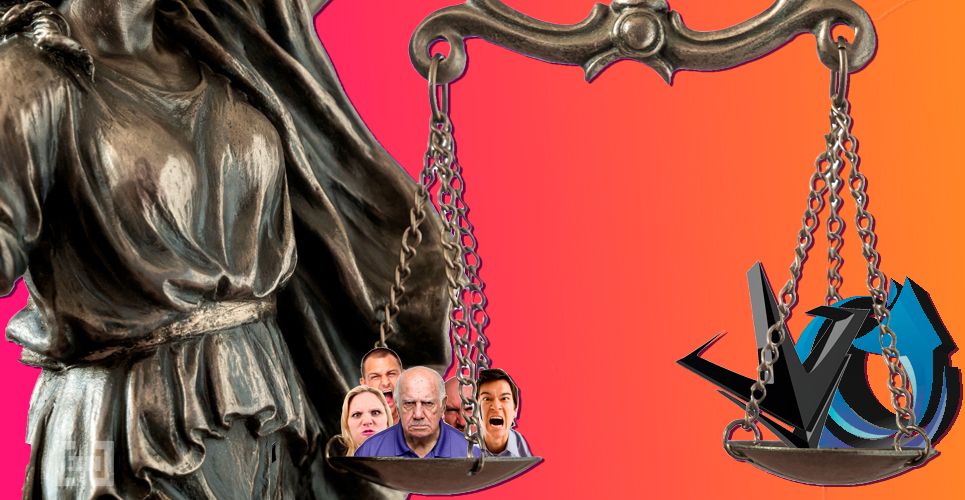The United States Securities and Exchange Commission (SEC) has dealt another apparently solid blow to blockchain endeavors in the U.S., putting the future of ICOs and the ICO landscape in question.
The change comes in the form of a settlement which calls for both fines and regulatory compliance from two ICOs. These fines and demands are the first evidence of decisive action from the SEC toward cryptocurrency startups operating under business practices that are potentially harmful to consumers and investors.
Blockchain-based companies, whose financial platform of choice is cryptocurrency (as opposed to fiat) faced early needs to develop a new means to raise money and secure financial support. The natural trajectory of this need occurred in the form of the initial coin offering, or ICO — cryptocurrency’s version of the initial public offering, or IPO.
This methodology, created by and for cryptocurrency — a financial system based on deregulation and decentralization — was met with great concern and a call for regulation by governing bodies such as the SEC, whose job it is to ensure that investors are protected and capital growth ventures are safely and fairly executed.
A direct result of the stock market crash in 1929 that led the Great Depression, the creation of the SEC took place to ensure that consumer faith in securities markets would never again sink at the same rate or to the same depths that it that year. The Securities Act of 1933 and Securities and Exchange Act of 1934 intended to bolster confidence in the financial future of securities and to develop a monitoring system for companies that would ensure truthful, honest, and fair business practices for all investors.
These laws, enforced by the SEC, are also still relevant and useful today. They also caused the SEC to turn its attention toward ICOs. The Commission has essentially developed an entirely new division which is focused on digital assets, including cryptocurrency and token sales such as ICOs. It has also appointed leading cryptocurrency experts and analysts to key new senior advisory roles in order to ensure U.S. consumer safety in the digital investment space.

Why All The Attention?
Several key differences exist between ICOs and IPOs. In order to fully grasp the SEC’s position on regulating blockchain company ICOs, it is important to understand these differences. The most important thing to note about ICOs is that they primarily exist to raise funds and raise capital for brand new companies, with no history, financial records, or any other sort of information. Blockchain startups begin with ideas. The ICO collects funds to develop ideas. Some ICO funded projects end up wildly successful; most do not. Additionally, ICOs focus primarily on individual investors. Investor funds go directly toward company start-up costs, which, even if they are successful, may not see profitability for years. The natural safety net of the fund structure simply does not exist. This type of venture is less risky for blockchain experts, venture capitalists, or investing veterans, who have watched cryptocurrency and distributed ledger-based business over their not-so-lengthy history and are used to conducting their due diligence. They’ve already noted what has worked and what hasn’t, and make decisions accordingly. These ventures were less of a risk when fewer people were eyeing ICOs as a legitimate way to invest. For the average investor accustomed to the safeguards and protections the SEC has offered U.S. consumers for nearly a century, the initial lack of regulation posed a significant risk. Average investors were accustomed to operating within traditional US securities markets, where a change to only one letter in the acronym signals an entirely different investment safety experience. In an IPO, investors are purchasing shares of an existing and typically well-established company, one that not only has a proven record of profitability, but also strong business plan for future growth and development. The IPO process involves mandatory whitepapers, usually called a prospectus, detailing their future plans. Not only that, they must provide detailed financial records and projections. The process focuses specifically on banks; in other words, individuals with fiat funds to spend do not have unlimited access to IPO offerings. These traditionally are for banks and accredited investors to protect average consumers. This dichotomy created nearly a decade of growing tension and unease between ICOs and the SEC, with blockchain companies exhibiting reluctance to be monitored or put under the same regulatory standards as fiat investing. (This is particularly true given the outcome of similar regulations in foreign countries, including China’s ban on cryptocurrency.) This recent order has caused both sides of this argument to re-evaluate their goals and stance on regulating the ICO market.
Airfox and Paragon: Test Cases for Registration Regulations
The SEC and ICOs have been on a collision course over the nature of securities. Under the long-held SEC definition of security, the ruling determined that many ICOs most certainly are offering investors securities — as investors are purchasing a promise of value. Value exists, despite the notion that the value is within a digital asset that remains undeveloped, let alone profitable. Whether that value lies in equity or debt is often unclear, but the ICO is offering value to investors. The SEC confirmed its stance that ICOs fall under the label of a security in its now infamous investigation and subsequent shutdown of the DAO, or the Decentralized Autonomous Organization. Created for use as a venture capital fund / VC firm for cryptocurrency within decentralized markets, the DAO was an Ethereum-based smart contract platform which launched in May 2016. A month later, it was subject to a $70 million dollar hack. Over a year later, the SEC ruled that tokens sold through virtual organizations such as the DAO were securities. As such, they were subject to federal securities law. The DAO experience not only set the SEC precedent for ICO token sales but also set already-innovative blockchain startups to work imagining ways to circumvent cumbersome and expensive security registration and regulatory law. In the case of the recent SEC rulings against Airfox and Paragon, they did not get far enough to debate the validity of the ICO value. The companies received penalties simply for failing to register as a security. According to Stephanie Avakian, Co-Director of the SEC’s Enforcement Division:We have made it clear that companies that issue securities through ICOs are required to comply with existing statutes and rules governing the registration of securities. These cases tell those who are considering taking similar actions that we continue to be on the lookout for violations of the federal securities laws with respect to digital assets.Steven Peikin, another Co-Director of the SEC’s Enforcement Division, adds to Stephanie’s comments, saying:
…by providing investors who purchased securities in these ICOs with the opportunity to be reimbursed and having the issuers register their tokens with the SEC, these orders provide a model for companies that have issued tokens in ICOs and seek to comply with the federal securities laws.Why is registration as a security important? This question is the crux of why this case is so pivotal to the future of the SEC’s relationship with all future ICOs. By penalizing Paragon and Airfox for failing to register, the SEC has established a clear position on ICOs. It is articulating and enforcing that ICOs are selling securities, and that, as such, they fall under the complete regulatory control of the SEC. The two companies raised over $27 million USD via ICOs in 2017. According to the press release from the SEC itself, the commission settled with both companies. Both companies must register their tokens as securities. They must also comply with a lengthy list of additional regulatory demands, including filing quarterly financial and progress reports with the SEC. They have both suffered $250,000 fines and, perhaps most damaging, must offer investors their money back.

The Future of ICO/SEC Relations
As the first time the SEC has taken action against an ICO for anything other than obvious fraud (which in the past has included misrepresentation of business practices, or unscrupulous marketing techniques), this significant step could signal a massive shift in both ICOs and blockchain companies. However, experts are confident that this decision, while it does represent a change in enforcement, does not signify a shift in SEC policy toward securities or ICOs. According to a statement provided by Maxwell R. Rich, Regulatory Advisor at AngelList, and Deputy General Counsel at Republic, “The recent publicized settlements and guidance provided by the Commission continue the position originally taken in The DAO; securities transactions must be conducted in compliance with applicable federal, state and when relevant, foreign laws. In the United States, securities transactions must be registered with the Commission or specifically exempted from registration, the securities themselves are not registered or exempted. Therefore, those who profit from acting as intermediaries in the sale, leveraging, exchange or investment-advisement of digital securities should be aware there are laws which may require them to register with the SEC or state regulators. Those who offer digital securities must ensure that the manner of their offering and the investors who purchase them are compliant with the current laws in place, even if they aren’t taking cash or crypto-assets as consideration for the digital asset securities. The SEC did not provide further guidance on mining and other methods of token acquisition schemes which do not fit nicely into the offer and sale paradigm.” Rich also offers hope for future ICOs, detailing specific avenues such as Reg D private placements, Reg S international offerings, and Reg CF limited offerings: “Issuers on Republic have found success with this method, but it is still early days. Many industry participants are actively investigating the Reg A+ and IPO routes to token sales. These paths are promising, but also unclear. Reg A+, while a manner to sell securities to anyone freely, up to $50 million a year, seems promising, many tokens that are not debt or equity may not meet the definition of qualifying security, foreclosing or delaying the offering. The IPO route is very expensive (even more so than Reg A+, which could cost over a million dollars to prepare for) and no project or company has been able to meet the requirements to date.” However, other experts, such as U.S lawmakers Ted Budd, Warren Davidson, Tom Emmer, Darren Soto, and 11 co-signers state in a related letter that:“…current uncertainty surrounding the treatment of offers and sales of digital tokens is hindering innovation in the United States and will ultimately drive business elsewhere. We believe the SEC could do more to clarify its position. Additionally, we are concerned about the use of enforcement actions alone to clarify policy and believe that formal guidance may be an appropriate approach to clearing up legal uncertainties which are causing the environment for the development of innovative technologies in the United States to be unnecessarily fraught.”

Consumer Confidence and Security are Key
As cryptocurrency prices continues to correct, significant unease has gripped investors and blockchain companies alike. After the all-time highs of 2017, where bitcoin briefly hit the coveted $20,000 mark, it is unclear how low the market will dip. Bitcoin is currently hovering around $4,500, having lost 15 percent in under 24 hours. This uncharted territory produces fear in market participants. Individual investors love the idea of the simplicity, efficiency, and freedom promised by cryptocurrency, but they were ill prepared for human nature, the drive to make a quick dollar (or in some cases, 100 million dollars) through an ICO— with little to no regulation or consequences for those who choose to do so in less than scrupulous ways. The SEC is aware that decisions such as the Paragon/Airfox ruling have implications throughout the crypto market. Some experts, such as Rich, believe the recent SEC actions can potentially help the market eventually stabilize: “There is a move to quality, investors are looking for issuers and projects with legitimate histories, legal previous fundraising efforts, and future plans that conform to the realities of securities laws (whether they will loosen not). Ultimately the SEC’s consistent policies and willingness to have open investigations with projects trying to do the right thing should help the market stabilize and grow again, once frameworks are better settled and understood. This is exemplified in the crypto’s current trend of Security Token Offerings (STOs). There is a larger appetite for the adoption of security token projects due to the mature securities law framework that exists in the US.” SEC chairman Jay Clayton further expresses the need for these policies in testimony given before the SEC on Feb 6, 2018, stating:“[T]here are significant security risks that can arise by transacting in these markets, including the loss of investment and personal information due to hacks of online trading platforms and individual digital asset ‘wallets.’ A recent study estimated that more than 10% of proceeds generated by ICOs — or almost $400 million — has been lost to such attacks. And less than two weeks ago, a Japanese cryptocurrency market lost over $500 million in an apparent hack of its systems.”In conclusion, it is clear that a need exists for consumer safety. It is unclear exactly how the SEC’s decision will affect not only Airfox and Paragon’s future, the future of ICOs in the U.S. as a whole and, ultimately, the progression and rise of blockchain technology. The beauty of blockchain can also be its downfall, and with $400 million lost to hackers through ICOs already, the need for barricades and safety precautions is very clear. The future may include the SEC and the cryptocurrency/blockchain world setting aside their differences — however fundamental they may be — and developing a system that will satisfy lawmakers, business, and the general public alike. Think the SEC will continue to tighten the noose on ICOs? Or will this settlement be the peak of enforcement? Let us know your thoughts in the comments below!
Top crypto platforms in the US
Disclaimer
In adherence to the Trust Project guidelines, BeInCrypto is committed to unbiased, transparent reporting. This news article aims to provide accurate, timely information. However, readers are advised to verify facts independently and consult with a professional before making any decisions based on this content. Please note that our Terms and Conditions, Privacy Policy, and Disclaimers have been updated.

Jon Buck
With a background in science and writing, Jon's cryptophile days started in 2011 when he first heard about Bitcoin. Since then he's been learning, investing, and writing about cryptocurrencies and blockchain technology for some of the biggest publications and ICOs in the industry. After a brief stint in India, he and his family live in southern CA.
With a background in science and writing, Jon's cryptophile days started in 2011 when he first heard about Bitcoin. Since then he's been learning, investing, and writing about cryptocurrencies and blockchain technology for some of the biggest publications and ICOs in the industry. After a brief stint in India, he and his family live in southern CA.
READ FULL BIO
Sponsored
Sponsored
